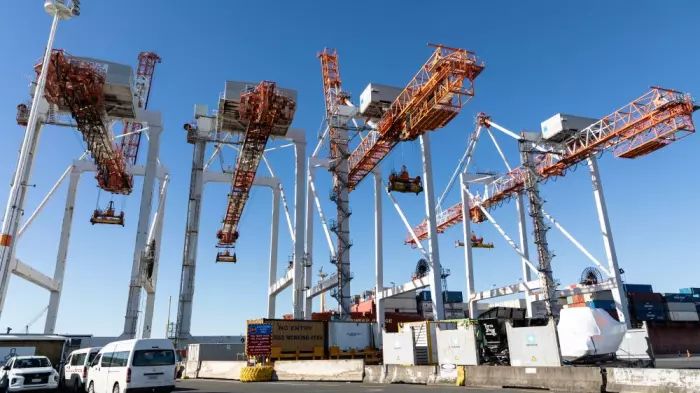New Zealand’s three NZX-listed medical cannabis companies have seen their shares sliding downhill over the past few months. But all three believe that when steady revenue starts coming in the door next year, that will all change.
Cannasouth was NZ’s first medical cannabis company to list on the New Zealand stock exchange (NZX) in June 2019. The firm’s share price has edged down just 5% in the last month and over the past year has fallen from 37.1 cents to 28.5 cents – a 23.2% drop.
Chief executive Mark Lucas said volatile markets around the world aren’t helping the medicinal cannabis sector.
“Markets are tough at the moment, so that's definitely an element to it,” he told BusinessDesk.
“The reality is that, for New Zealand medicinal cannabis companies, we're at a turning point after years of establishment building.”
A “huge, underlying demand” for medicinal cannabis products, both globally and in NZ, is giving him hope.
Lucas said an estimated 265,000 people are using cannabis for therapeutic purposes at the moment, but only 4% of patients are using medicinal cannabis.
Lucas said Cannasouth was “just in that cusp” of now beginning to generate revenue. That, he thinks, is part of the sinking share price problem.
“Ultimately, it's trading revenue and showing that to the market,” he said.
“It’s up to companies like Cannasouth to start generating revenue, and that's what we're doing.”
Having products verified by the Medicinal Cannabis Agency and getting those on the market have helped and Lucas said Cannasouth was now “building off the foundation” that they’ve created.
Volatile share prices
Rua Bioscience’s managing director, Anna Stove, agrees with Lucas that the share prices of medical cannabis companies are “quite volatile”.
Rua’s share price has been even more pinched than Cannasouth’s in the last year – it’s down just 2% in the last month, but in the past year it has fallen from 44 cents to 23.5 cents per share, a 46.6% drop.
Rua has been listed on the NZX since late 2020 and Stove said the company recognises that the fall in its share price has been a “real key challenge”, but it's about reminding people that the company is still pre-revenue and has a small market cap.
“Because of that, we're even more uniquely subject to the volatility of the market. And we actually believe that our share price reflects the overall share market in New Zealand at the moment.”
She knows what shareholders and investors are waiting for: meeting commercial goals and bringing in revenue.
“Once we start demonstrating that, actually, we're selling, we've got sustainable revenue – that's when investors and shareholders start getting excited,” she said.
“We've done all the hard graft to get us to where we are now, and we're literally on the cusp of going out there and delivering to the world. So, 2023 and 2024 are going to be really exciting for us.”
Stove said Rua has received its first medicinal cannabis flower order from Germany, which makes it the first NZ medicinal cannabis company to launch flowers in Germany.
A couple of deals have also been signed with Rua’s other European medicinal cannabis distributors and she said the company will be looking at other countries, such as Poland, the Czech Republic and the United Kingdom.
“But we've got to get it right in Germany first,” she said.
Perfect storm
Greenfern Industries managing director Dan Casey told BusinessDesk: “Increasing costs, increasing difficulties in travel and export/import over the past couple of years – it's almost like the perfect storm.”
Greenfern is a smaller stock than Cannasouth and Rua and only listed on the NZX in October last year. Its current share price is 6.9 cents – down from 13.1 cents a month ago, a loss of 47.3%.
In the last year, it has dropped 64.8%, down from 19.6 cents.
Casey said the company is focused on getting to a positive revenue position, but right now was still relying on capital.
“We do have capital in hand now to execute the next phase and keep us going for the next 12 to 18 months,” he said.
“But in a nutshell, it's frustrating.”
NZ’s smaller market makes the process more difficult. Casey said Greenfern is having to send all its cannabis flowers offshore to test to them to the NZ quality standards, because there are no labs here that can test them.
“Obviously, straight away, that's a red flag,” he said.
Medicines under Greenfern’s brand have been prescribed in Australia for the past year. It was an area that was recognising good revenues in a market they were keen to grow further.
“We're now ready to scale and start selling that cannabis overseas, and as soon as that starts happening, we really move into a revenue-positive cash flow position,” Casey said.
“When we're doing that, we're not having to ask shareholders to dip into their pockets any more.”
He has his heart set on seeing Greenfern get on its feet – so much so that he tells BusinessDesk he’ll “bleed for it to succeed”.
Competition
Is NZ's medicinal cannabis sector getting more – or less – competitive?
Cannasouth’s Lucas thinks the number of players coming into the sector has dropped off considerably.
“We need a strong NZ industry,” he said.
“It needs to be more than just one or two companies because the stronger the industry is and the more robust it is, the more other markets will look to NZ as being a place to do business.”
Rua’s Stove also thinks along the same lines.
“New Zealand is a small market, and what you will probably see here is not everyone will be successful,” she said.
“We’re definitely all working individually to be successful, but we're also trying to be as collaborative as we can to ensure that patients actually can get the medicine.”
Greenfern’s Casey thinks there’ll be a need for mergers and partnerships going forward in the medicinal cannabis industry here, “because it's going to get hard”.
“To get there and compete on the global stage, there will be partnerships, collaboration or even mergers.
“We'll see what the future brings. It’s exciting, but daunting.”














